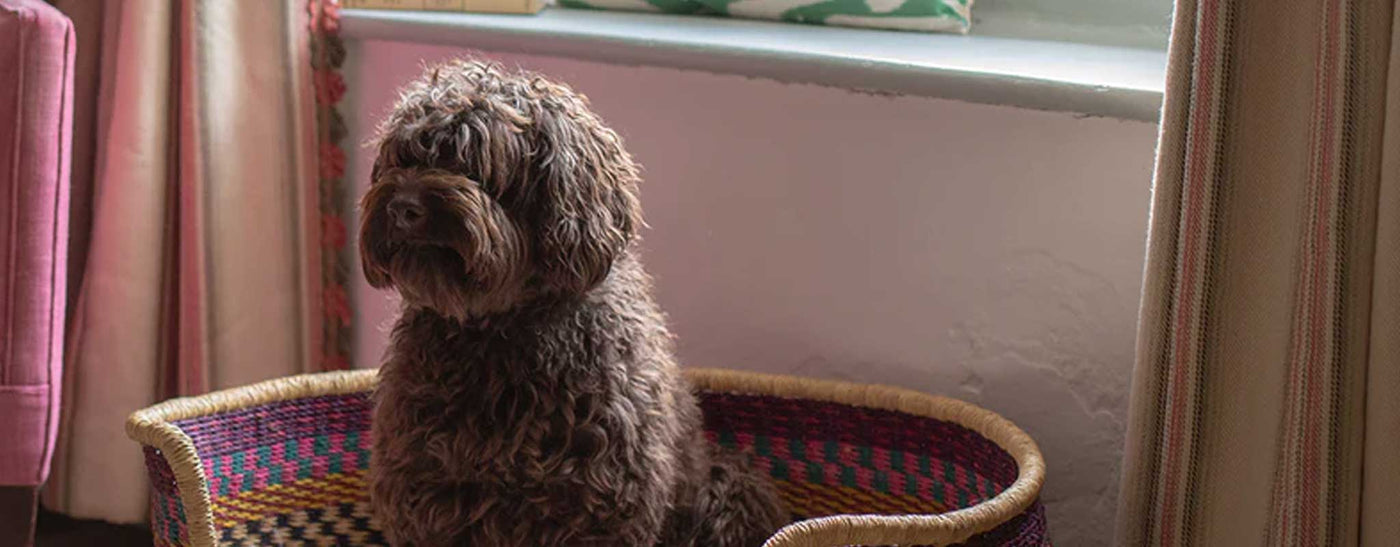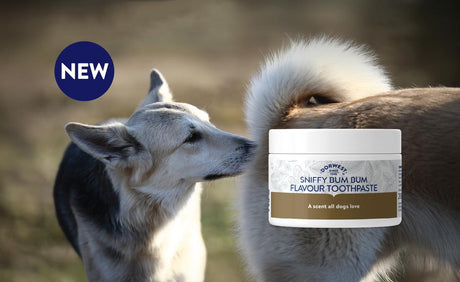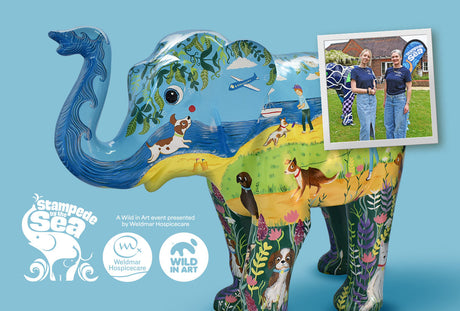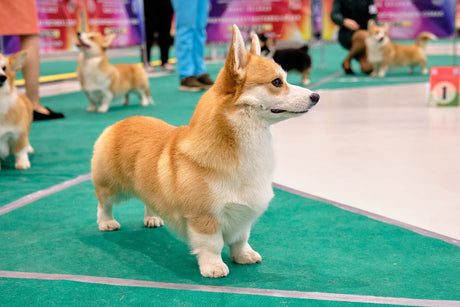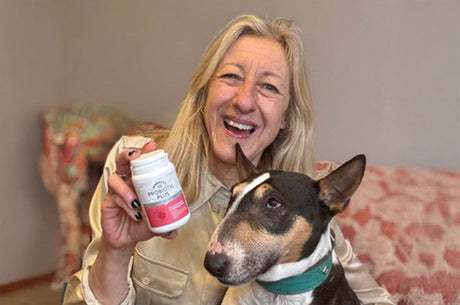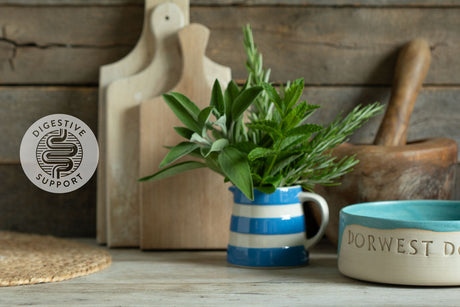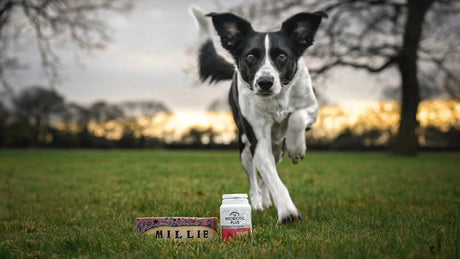The early stages of your puppy’s life are undoubtedly the most important in making sure they grow up to be happy, healthy and socialised. A recent study from the Royal Veterinary College however suggests that dogs bought in the pandemic have higher rates of problem behaviours due to restrictions.
Read below for what you can do if you have an anxious dog:
During the covid pandemic, the UK saw a whopping 3.2 million households acquire a pet<1>, with about 57% of UK households in 2023 now with a pet<2> – that’s 38 million! As dog parents we know how vital it is to make sure that our puppies and dogs are socialised with all walks of life and experience of different scenarios from a young age. This includes socialising with different people, meeting a variety of dogs, and attending training classes, so that as they grow up they are well equipped to cope with all different aspects of life.
A recent study by the Royal Veterinary College<3> (RVC) suggests that puppies or dogs acquired in lockdown now have more problem behaviours, as we weren’t able to socialise or train our dogs with their usual experiences or training.
What are pandemic ‘bad behaviours’?
The study highlights the main ‘bad behaviour traits’ due to the restrictions that lockdowns brought to the country to include:
- separation anxiety – especially where owners have now gone back to offices.
- aggression or uncertainty toward other dogs.
- anxiety or uncertainty toward people.
Battersea also did a study with the RVC, collecting over 1,000 responses from people who got a dog within the first 9 months of the pandemic. The following behavioural issues were noted:
- Pulling on the lead (67%);
- Jumping up at people (57%);
- Not having recall (52%).
A third of dogs were also noted to be suffering from separation anxiety at the age of 21 months.
The impact on rehoming & rescue
The Pet Food Manufacturers' Association (PFMA) completed a short survey post-pandemic to understand the demographic of new owners:
- 59% of new pet owners were under the age of 35;
- 56% of those buying their first pet also had children at home;
- with 20% of those with children at home saying it’s a real challenge.
31% of people who acquired a dog or cat in this period had not been considering becoming pet owners before lockdown.
During 2020, Battersea received over 40,000 applications to rehome dogs, an increase up +53% compared to the previous three months<4>.
It’s not all bad news!
As a nation of dog lovers, we are now one of the top countries in the world with the highest percentage of pets per household, with the third highest dog population in the world at 18% of all UK homes now owning a dog<5>.
Pets have shown in studies to significantly help mental health, with Heart.org<6> finding pets can help reduce work-related stress, increase productivity and manage anxiety, alongside encourage us as a nation to be more active.
Battersea also noted<7> the following from the pandemic:
- Local Authorities dealt with 48% fewer stray dogs than pre-pandemic.
- Veterinary data suggests fewer dogs may have been injured in road traffic accidents and caught infectious diseases.
- Fewer dogs and cats were left alone during lockdown due to the rise in home working.
How to support your anxious dog
It can be unsettling and distressing for everyone when you have an anxious dog, especially when reactions can be extreme. So, what can you do if you have an anxious “pandemic puppy”?
The most important thing is not to give up. Our partner and resident dog trainer Amelia Steele says the best time to start training, is always now! Focus on encouraging desired behaviours and redirecting attention away from anxious reactions.
Amelia says: “Socialisation is so much more than meeting dogs. Remember to expose your puppy or dog to different sights, sounds, smells and environments.” Start building this exposure up slowly. Consistency, patience, and repetition are key to helping your dog understand good behaviours and to help support anxiety.
For anxiety around loud noises, and especially fireworks, start desensitisation training in advance; building up sounds from a quiet volume, and slowly turning this up over time. Always be prepared by making sure your dog’s microchip is up-to-date, and secure your house, garden and fencing to avoid your dog escaping if they do become scared.
Amelia also recommends building a ‘safe space’ in the house where your dog can retreat to if they do become anxious, away from doors and windows. This provides also provides a good place for them to go if they become anxious around unexpected visitors or just need to just have a moment of calm. Don’t forget to follow @dorwest for more behavioural and training advice!
Our Scullcap & Valerian Tablets can help naturally relax your pet and work brilliantly alongside gentle and consistent behavioural training, keeping your dog clam and focussed. The active herbs naturally support the calming pathways within the nervous system, reducing anxiety without immobilising muscles or causing drowsiness. They don’t make pets dopey or wobbly – in fact they are widely used for agility and show dogs when they need to be alert and focussed, but calm. One of our best-sellers, Scullcap & Valerian Tablets help tackle stress, fear and anxiety, whatever the cause, so you and your pet can relax, no matter what.
For situations when you and your dog are maybe “caught out”, for example unsuspected visitors or fireworks, our Valerian Compound is a great short-term and quicker-acting solution – calming the nervous system within 30 minutes.
Do you have an anxious dog acquired in the pandemic? We’d love to hear from you! Call one of our lovely and expert customer service team on 01308 897 272.
<1> Households 'buy 3.2 million pets in lockdown' - BBC News
<2> UK Pet Food releases its annual pet population data - Veterinary Practice (veterinary-practice.com)
<3> RVC Pandemic Puppies Research Survey
<4> The Impact of COVID-19 on Companion Animal Welfare | Battersea Dogs & Cats Home
<5> Dog Ownership by Country 2024 (worldpopulationreview.com)
<6> 5 Ways Pets Help with Stress and Mental Health | American Heart Association
<7> The Impact of COVID-19 on Companion Animal Welfare | Battersea Dogs & Cats Home
